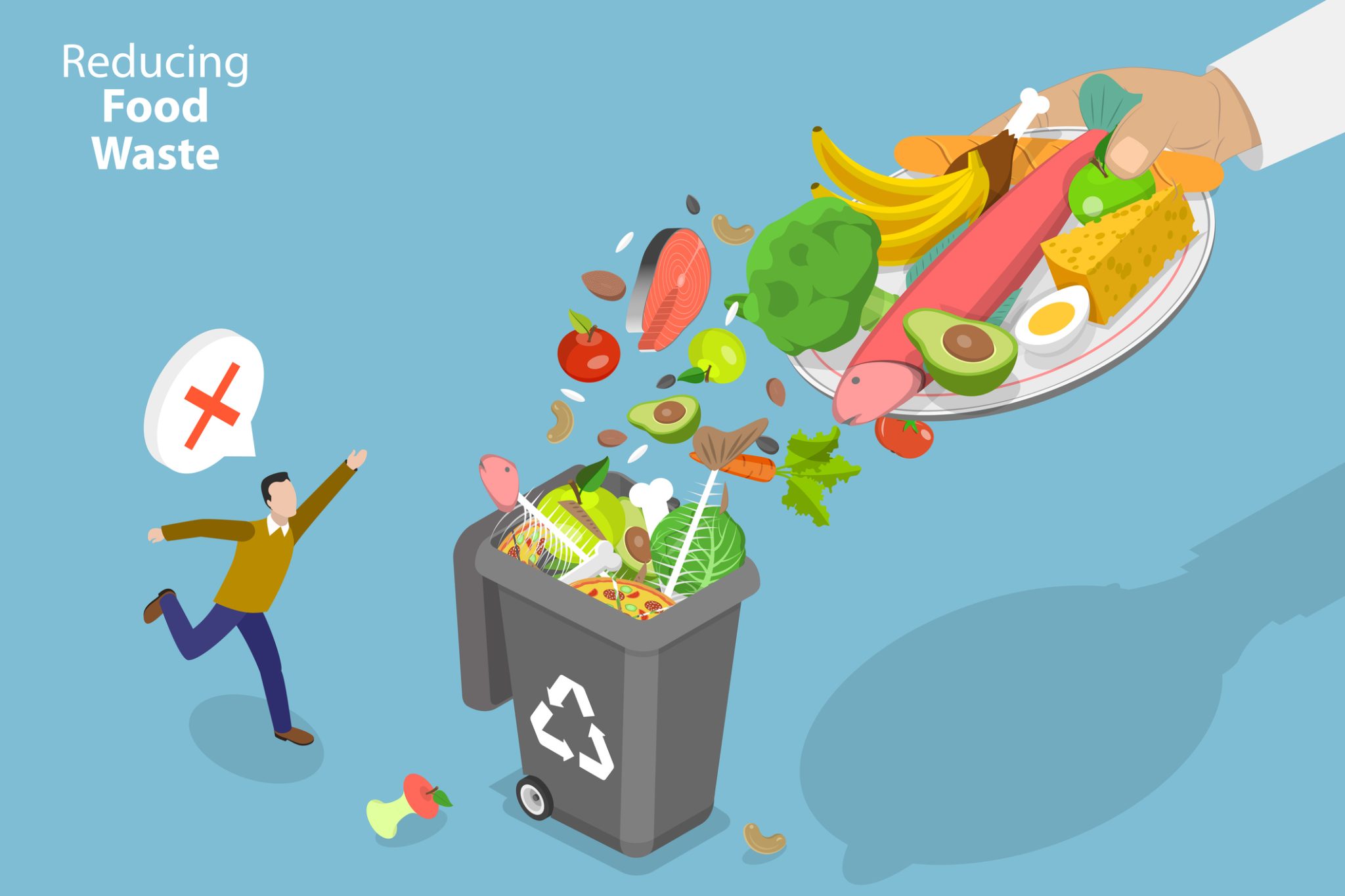By Jenna Anding, Ph.D., R.D., L.D.
With rising food costs, many of our military families are exploring ways to stretch their grocery budgets. Reducing food waste is one place to start. Nearly 30% of the edible food in the United States is wasted every year, amounting to approximately 28 pounds of food per person every month. Most of the food wasted in the U.S. comes from the home so adopting smart and sensible shopping, food preparation, and food storage practices can help all of us, including military families, get the most out of our food dollars. We can do this by having a purpose and a plan for every food item that we buy and prepare. The following tips can help you reduce unnecessary food waste in your home:
Meal Planning
- Think about the number of meals you need to prepare for each week and the number of people who are eating.
- Plan meals using what you have on hand first. Check your freezer, pantry, and refrigerator first!
- Shop with a list to remind you of what you need. This can help reduce the temptation of impulse buying at the store.
Food Shopping
- Stick to the shopping list unless you have a good reason. Oftentimes we buy food without thinking about how it will be used. This contributes to food waste.
- Make sure every item you place in your cart has a purpose.
- Pay attention to the package size. Buying more than what we need can lead to waste.
- Buy what you can use or freeze before the date stamped on the package to assure the best quality. Keep in mind that with the exception of infant formula, most foods are safe to eat after the date stamped on the package.
Meal Preparation
- Prepare the amount of food that can be consumed in 3-4 days or frozen to get the best quality.
- If you have leftovers, consider portioning them in single-serving containers for future meals such as the next day’s lunch.
- Leftovers can also be frozen to maintain quality and reduce waste.
Food Storage
- Consider storing leftovers in clear containers so you can see them.
- Date the foods you freeze and practice FIFO: First in, First Out!
- Keep an inventory of what you have so you can use the foods you have while they are at peak quality.
These tips can help reduce the amount of food that goes to waste, helping you get the most out of your food dollars. For more tips to help reduce food waste at home, visit the United States Department of Agriculture website.















